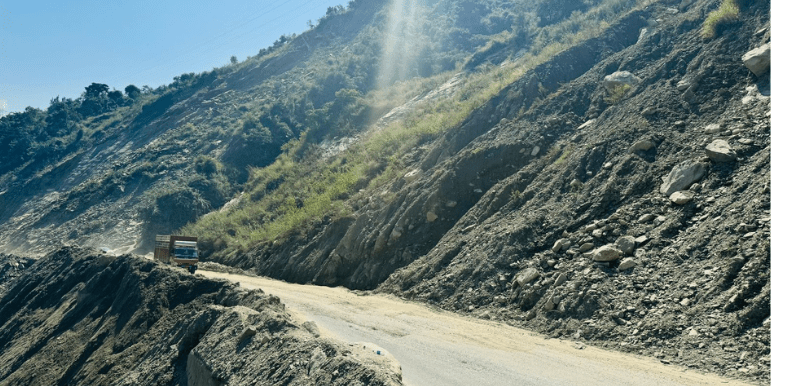Pallavi Sharma
DHARAMSHALA: In a blunt and unusually candid statement, Union Minister for Road Transport and Highways Nitin Gadkari has come down heavily on the shoddy planning and execution behind the repeatedly damaged Mandi-Manali four-lane national highway.
As several stretches of the highway have been washed away again by the raging Beas, Gadkari squarely blamed poorly prepared detailed project reports (DPRs) as the root of the recurring disaster.
Despite spending Rs 3,000 crore on the highway, major portions have once again been swept away by landslides and the swelling Beas. “Who in their right mind approves a four-lane highway running alongside a river like the Beas?” Gadkari asked, clearly frustrated.
Gadkari’s old video goes viral amid rain disaster
“But of course, the best thing some officials cleverly do is prepare tenders. That part, they’ve mastered,” the minister said at an old event, the video of which is being widely circulated currently as Himachal Pradesh again faces one of the worst rain devastation in decades.
Gadkari didn’t mince words when he alleged that the tenders were designed to suit select companies, a practice that had contributed to dangerously fragile infrastructure.
“After preparing faulty DPRs, these tenders are custom-fitted to help certain contractors win. Field surveys? Ground studies? Forget it. Many of these reports are made from drawing rooms,” he said.
He acknowledged the gravity of his own language, saying, “I apologise for using the word ‘culprits’, but accountability has to begin somewhere.”
Ministry to penalise consultants for poor DPRs
The minister announced that the government is now rating consultants on the quality of DPRs they produce. “Those who prepare good reports will be rewarded and those who skip proper procedures will be penalised,” he said. “The quality of DPRs in India is, frankly, not acceptable. If we don’t change this culture, disasters will keep repeating.”
Gadkari also highlighted the dangerous impact of these failures during natural calamities. “Mountains are coming down, roads are being swept away and during such times, evacuating people becomes a nightmare,” he said.






